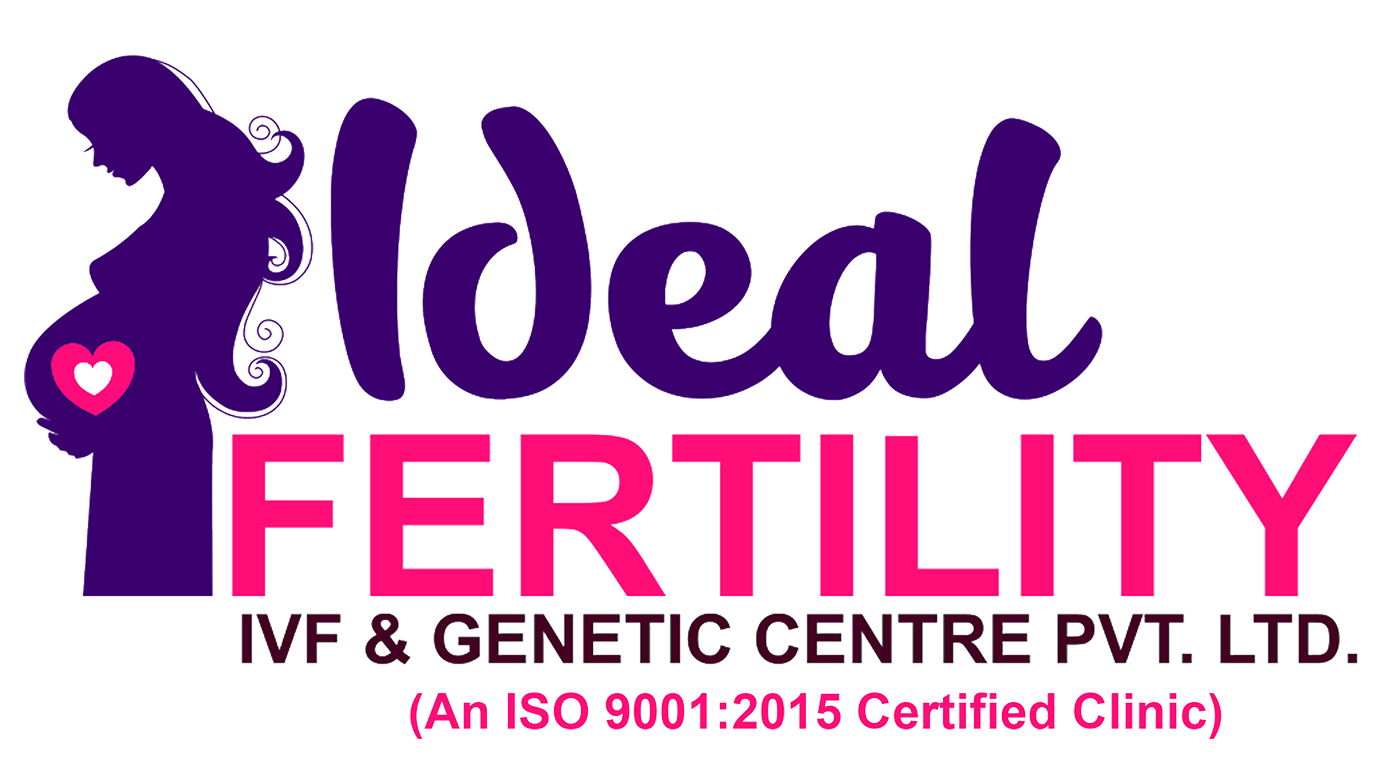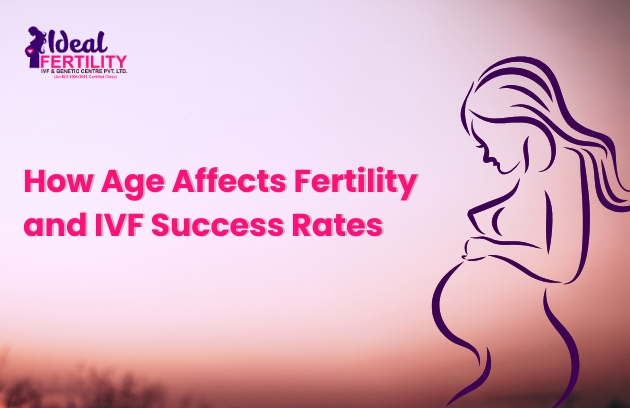Table of Contents
In vitro fertilization (IVF) has become a beacon of hope for couples struggling with infertility. The process has helped millions of people around the world fulfill their dreams of having children. However, one of the most significant factors influencing the success of in vitro fertilization treatment is age. As women (and men) age, fertility naturally declines, and this decline can have a direct impact on the chances of success with IVF.
Understanding the connection between age and fertility is critical for individuals considering in vitro fertilization treatment, as it can affect both the likelihood of conception and the overall health of the pregnancy. In this article, we’ll explore how age impacts fertility and IVF outcomes, and what couples can do to maximize their chances of success.
The Impact of Age on Female Fertility
Female fertility is primarily influenced by the quantity and quality of a woman’s eggs. Women are born with a finite number of eggs, and over time, both the number and the quality of these eggs naturally decrease. This reduction in egg quality and quantity accelerates after the age of 35, making it more difficult for women to conceive naturally. By the time a woman reaches her late 30s and early 40s, the chances of getting pregnant without medical intervention significantly decline.
Egg Quality and Quantity
One of the most significant factors influencing fertility is egg quality. As women age, the eggs they produce are more likely to have chromosomal abnormalities, which can lead to unsuccessful pregnancies, miscarriage, or conditions like Down syndrome. This decline in egg quality becomes especially prominent after the age of 35, with a noticeable drop in the quality of eggs by the time a woman is in her early 40s.
In addition to quality, egg quantity also decreases with age. At birth, a woman has around one to two million eggs, but by puberty, this number drops to about 300,000 to 400,000. As a woman ages, the remaining eggs decrease in both number and quality. By the time a woman reaches her mid-30s, she may have fewer eggs, which limits the likelihood of IVF success.
This is why in vitro fertilization treatment can be more effective at younger ages. The younger a woman is when she begins IVF, the higher the likelihood that her eggs will be of good quality, increasing the chances of successful fertilization and implantation.
Uterine Health
In addition to egg quality and quantity, uterine health plays an essential role in the ability to carry a pregnancy to term. With age, the lining of the uterus may become thinner, which can affect embryo implantation. This thinning of the uterine lining often happens after 35, making it harder for an embryo to implant successfully. While advances in in vitro fertilization treatment techniques, such as embryo freezing and genetic screening, can overcome some of these challenges, the age of the woman still plays a crucial role.
IVF Success Rates and Age
The success rate of in vitro fertilization treatment is closely tied to a woman’s age. In general, younger women tend to have better outcomes with IVF, while older women, particularly those over 40, face more challenges. Here is a breakdown of how age impacts IVF success:
Women Under 35
For women under the age of 35, the success rates of IVF are relatively high. According to data from various IVF clinics, women under 35 have an average success rate of about 40-50% per IVF cycle. This is because younger women tend to have higher-quality eggs, which increases the chances of successful fertilization and embryo development.
At this age, women typically produce a larger number of eggs per cycle, which allows for better selection and higher chances of implantation. Additionally, the risk of chromosomal abnormalities is lower, which further boosts the chances of a healthy pregnancy.
Women Aged 35-37
For women between the ages of 35 and 37, the success rates begin to decline, though they remain relatively high compared to older age groups. The success rate for IVF for women in this age range is typically around 30-40%. While the decline in fertility may start to become noticeable during this time, many women in their late 30s still produce high-quality eggs, though fewer in number.
The risks associated with in vitro fertilization treatment for women in this age group include a higher likelihood of miscarriage, and the possibility that some of the eggs may be genetically abnormal, which can lower the chances of a successful pregnancy.

Women Aged 38-40
For women between 38 and 40 years old, the chances of IVF success decrease significantly. The success rate typically falls to around 20-30% per cycle, largely due to a decline in both the quantity and quality of eggs. Women in this age group are more likely to have fewer viable eggs, and the risk of chromosomal abnormalities increases. Additionally, the likelihood of miscarriage increases, as older eggs are more prone to genetic issues.
At this stage, some women may choose to use egg donation as a way to increase their chances of success. Egg donation involves using eggs from a younger, healthy donor to undergo IVF treatment, which can provide a significant boost in success rates. Many IVF clinics offer this option, and it is often a successful alternative for women over 40 or those who have experienced repeated IVF failures.
Women Over 40
By the time a woman reaches her 40s, IVF success rates drop dramatically. Women over 40 have an average success rate of around 10-15%, with the success rate declining further after the age of 42. This is primarily due to the combination of fewer eggs and a higher incidence of chromosomal abnormalities, which can affect embryo development and implantation.
At this age, the use of egg donation becomes more common, as it significantly improves the chances of success. Donor eggs come from younger women, typically under 30, and offer much higher quality than the eggs of older women. This, in turn, leads to a higher likelihood of fertilization and a successful pregnancy. Some women also choose to use embryo screening (PGT-A) to test for genetic abnormalities before implantation, which can help increase the chances of success.
Male Age and IVF Success
While the focus of age-related fertility issues often revolves around women, male age can also impact IVF success. As men age, the quality of their sperm can decrease, leading to a lower sperm count, reduced motility, and an increase in sperm DNA fragmentation. This can affect fertilization rates and embryo quality in IVF cycles.
However, male fertility tends to decline at a slower pace than female fertility, with noticeable effects typically beginning in men’s 40s and 50s. While sperm from older men can still result in successful IVF pregnancies, the use of techniques such as sperm DNA fragmentation testing or sperm freezing may be recommended in some cases.
Maximizing Your IVF Success
While age is a significant factor in IVF success, there are steps women can take to optimize their chances of a successful outcome:
- Early Intervention: Women who are concerned about their fertility should consult with a fertility specialist early on. If IVF is a possibility, starting treatment sooner can lead to better outcomes.
- Healthy Lifestyle: Maintaining a healthy lifestyle, including eating a balanced diet, exercising regularly, avoiding smoking, and reducing alcohol consumption, can improve overall fertility and increase the chances of success with IVF.
- Egg Freezing: Women who are not yet ready to have children but are concerned about age-related fertility decline may choose to freeze their eggs for future IVF treatments. This allows women to preserve their fertility and use their eggs at a later time when they are ready to have a family.
- Consider Egg Donation: For women over 40 or those who have had repeated IVF failures, egg donation is an option that can significantly improve the chances of success.
- Genetic Screening: Embryo genetic testing (PGT-A) can help identify chromosomal abnormalities before implantation, improving the chances of a healthy pregnancy and reducing the risk of miscarriage.
Conclusion
In vitro fertilization treatment offers hope for many individuals struggling with infertility, but age remains one of the most influential factors in determining IVF success rates. As women age, the quality and quantity of their eggs decline, which can lower the chances of success with IVF. However, advances in reproductive medicine, including egg donation, genetic screening, and embryo freezing, offer viable options to maximize the chances of a successful outcome.
Couples considering IVF should be aware of how age impacts fertility and IVF success, and consult with a fertility specialist to determine the best course of action based on their individual circumstances. With the right approach, IVF can still be a highly successful treatment for individuals and couples looking to build their families, regardless of age.

